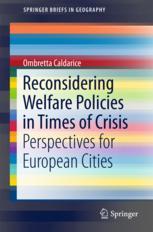

Most ebook files are in PDF format, so you can easily read them using various software such as Foxit Reader or directly on the Google Chrome browser.
Some ebook files are released by publishers in other formats such as .awz, .mobi, .epub, .fb2, etc. You may need to install specific software to read these formats on mobile/PC, such as Calibre.
Please read the tutorial at this link: https://ebookbell.com/faq
We offer FREE conversion to the popular formats you request; however, this may take some time. Therefore, right after payment, please email us, and we will try to provide the service as quickly as possible.
For some exceptional file formats or broken links (if any), please refrain from opening any disputes. Instead, email us first, and we will try to assist within a maximum of 6 hours.
EbookBell Team

5.0
110 reviewsThis book offers a European perspective on spatial planning and welfare policies in relation to the new conditions derived from the current urban crisis. The book deals with research and policy issues stemming from the fact that in the last ten years European cities have been affected by a structural crisis, not only financial but also a social, environmental and spatial, leading to an economic collapse. The crisis and its consequences due to political, financial and social conflicts contribute to increasing a city’s complexity in terms of decrease of public finance, slowdowns in the real estate market, economic stagnation and the reduction of the consolidated welfare policies. In light of this, this book proposes to reframe European urban welfare towards a “framework-rule” perspective. It is based on new rules and responsibilities as a path to change that would enable cities to respond to new circumstances through innovative actions thanks to co-production. The book focuses on the potential of this approach, identifying innovative perspectives for researchers, institutions and practitioners in the field of urban and regional planning.
It also addresses the growth of civic initiatives all over Europe in which citizens and private business are engaged for the self-delivery of urban facilities, while jointly identifying issues and needs, and trying to solve problems with innovative and inclusive responses. This book will appeal to students and researchers along with a professional and policy audience due to the topical nature of the contents.